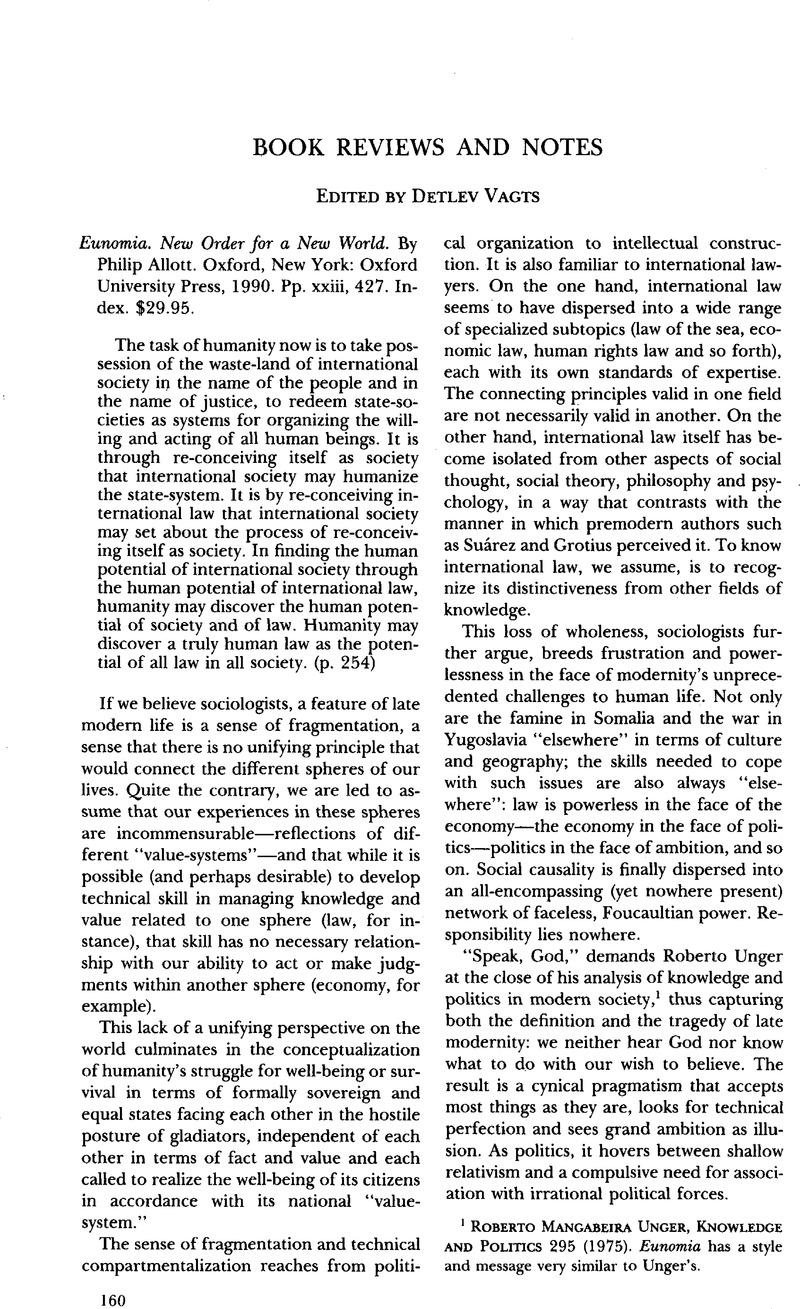No CrossRef data available.
Article contents
Eunomia. New Order for a New World. By Philip Allott. Oxford, New York: Oxford University Press, 1990. Pp. xxiii, 427. Index. $29.95.
Published online by Cambridge University Press: 27 February 2017
Abstract

- Type
- Book Reviews and Notes
- Information
- Copyright
- Copyright © American Society of International Law 1993
References
1 Roberto Mangabeira Unger, Knowledge and Politics 295 (1975). Eunomia has a style and message very similar to Unger’s.
2 A long list of names to indicate Allott’s debts (from Confucius to Teilhard de Chardin) appears on p. xxi of the preface. Express reference is made also to the work of Hans Kelsen and Myres McDougal. The text itself suggests two philosophers as the most important reference points: Kant and Rousseau.
3 The generic principles provide that (1) law is part of the social process; (2) law is dynamic; (3) all legal power is delegated power; (4) all legal power is limited; (5) all social power is under the law; (6) all legal power is in the social interest; and (7) all social power is accountable (pp. 168, 167–77).




